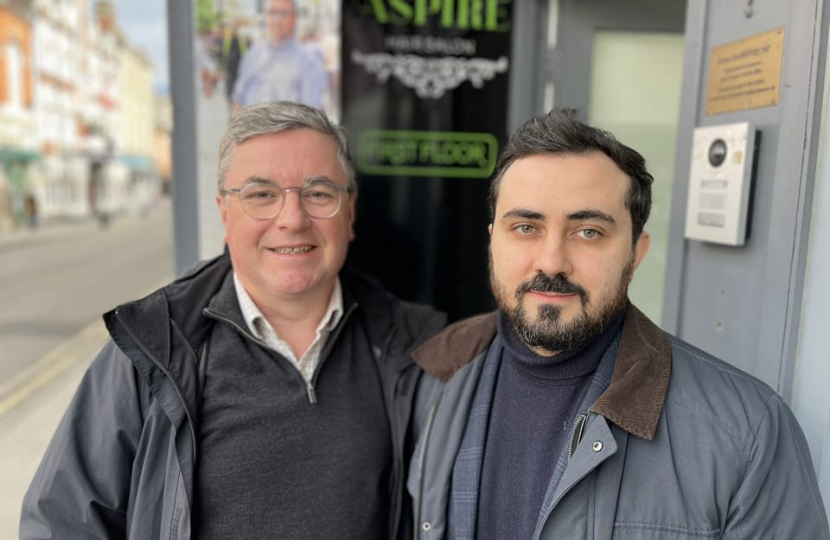
In a recent series of interviews, the presumptive Republican presidential nominees were each asked for their views on the war in Ukraine. Alarmingly, the two frontrunners, Donald Trump and Ron DeSantis, competed with each other to espouse the most pro-Kremlin line, with the latter declaring that providing further strategic assistance to Ukraine was not in US national security interests, suggesting that the largest war on the European continent since 1945 was merely a “territorial dispute”.
Such comments are not just self-defeating from a US security perspective; support for Ukraine is also directly in the interests of the US and Nato, helping to protect the international order by underpinning the principle that an authoritarian state cannot freely begin an unprovoked war against a smaller neighbour. But isolationist statements of this nature also ignore why the people of Ukraine are fighting. They are fighting for their freedom and human rights, which are protected in great measure through Ukraine’s membership of the European Convention on Human Rights (ECHR).
Ukraine has been a member since 1995. It has signified a national desire to move away from Soviet totalitarianism towards becoming a western democracy. In joining the ECHR, Ukraine was not just joining a continental organisation, with members both inside and outside of Nato and the EU, but also an organisation with a particularly British character.
British lawyers such as the future Conservative chancellor, Lord Kilmuir, had been instrumental in the convention’s initial drafting, and the British jurist, Lord McNair, served as the European Court’s first president. If the UK were to now leave the ECHR, we would not only be forfeiting our seat at a table we helped to create and which protects our values, we would also be undermining the credibility of its standards across our continent and in Ukraine in particular. These standards will be central to the Ukrainian legal system when the country rebuilds after the war.
Due to the lingering hangover of old Soviet practices and the instability since 2014, Ukraine will need outside assistance in implementing the convention and rebuilding itself as a vibrant democracy. Being frank, the situation requires improvement. As of February 2023, just under 14 per cent of all cases to come before the European Court of Human Rights relate to alleged human rights violations in Ukraine, and, since it joined, Ukraine has experienced the third highest frequency of applications before the court.
Most of these violations are rooted in the systemic challenges faced by the Ukrainian justice system, such as the inability to enforce the final judgments of national courts, unreasonable lengths of civil procedures, poor conditions of pre-trial detention, and issues related to appointment and dismissal of judges.
The issue of non-enforcement of court decisions is particularly striking. The total amount of unpaid court-ordered debts in Ukraine constitutes more than a quarter of national GDP. The problem is partly caused by the fact that creditors are not able to enforce their claims against state-owned enterprises due to special laws that prevent any enforcement of judicial decisions and the initiation of bankruptcy proceedings.
Addressing justice sector challenges such as the ones outlined above is one of the key priorities of the Ukraine Recovery Plan, presented in Lugano last July. As the next Ukraine Recovery Conference is to be held in London in June, the UK should take the lead in helping Ukraine to shape a vision that not only addresses such a major factor preventing foreign investment as the non-enforcement of final court judgments, but justice sector reform in general. Such vision would necessarily imply ECHR standards; the UK would have no credibility in consulting with Ukraine on how to align its justice system to ECHR standards if we followed Russia’s example by leaving the convention.
The European Convention on Human Rights, heavily influenced by British lawyers and officials, was created following the horrors of the Second World War, driven by a desire to both buttress the rights we enjoy at home and, in the words of Lord Kilmuir, to act as “a beacon to those at the moment in totalitarian darkness and give them a hope of return to freedom”. It is a beacon that the United Kingdom helped to light and one that we should continue to keep alive for the people of Ukraine and Europe.
Sir Robert Buckland is a former lord chancellor, secretary of state for justice and solicitor general, and Illia Chernohorenko is former director-general at the ministry of justice of Ukraine




